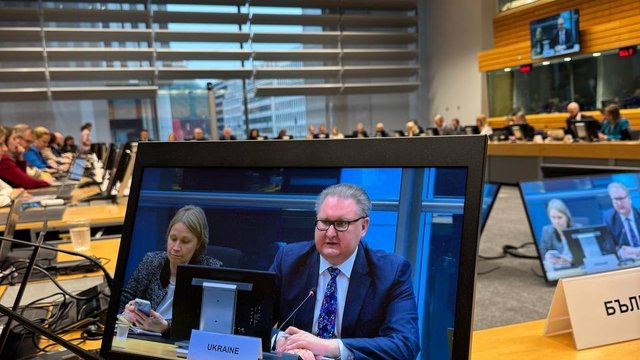Kachka highlights Ukraine's anti-corruption gains at Council of Europe

Deputy Prime Minister for European and Euro-Atlantic Integration of Ukraine Taras Kachka presented Ukraine's key achievements in the field of the rule of law and anti-corruption policy at a meeting of the Council of Europe Coordination Committee for the Approximation of Legislation (CoELA).
According to a statement from the Office of the Deputy Prime Minister for European and Euro-Atlantic Integration, as of today: a law on the establishment of specialized district and appeal administrative courts has been adopted; two judges of the Constitutional Court have been appointed presidents; draft laws on state regulation of business, supervision of local self-government bodies, and the establishment of a Paying Agency, necessary for the development of agrarian policy in accordance with EU standards, have been considered; public broadcasts of Verkhovna Rada sessions have been resumed.
"Taras Kachka also emphasized that 2025 was a year of fruitful work of key judicial institutions - the High Council of Justice (HCJ) and the High Qualification Commission of Judges (HQCJ). In just one year, the HCJ has already submitted 57 candidates for judicial positions to the president, and in total, 65 judges have been appointed by the president this year. The HQCJ is also actively working: 131 out of 141 candidates successfully passed the test to participate in the competition for the positions of judges of the High Anti-Corruption Court and its Appellate Chamber," the report says.
The Deputy Prime Minister emphasized the tangible progress in the field of anti-corruption, in particular: according to the National Anti-Corruption Bureau (NABU), since the beginning of the year, 560 proceedings have been initiated, 149 individuals have been notified of suspicion, 97 indictments have been filed with the court against 212 individuals, the High Anti-Corruption Court has issued 64 verdicts; the reform of the Bureau of Economic Security has begun - a reassessment of detectives and employees is underway; a competition has been opened for the head of the National Agency for the Detection, Search and Management of Assets Obtained from Corruption and Other Crimes (ARMA) with the involvement of international experts; the National Agency for the Prevention of Corruption (NAPC) is developing the text of the new Anti-Corruption Strategy and Program for 2026–2030, which will take into account the recommendations of the European Commission.
CoELA (Coordinating Committee for European Law Approximation) – Coordinating Committee for the Approximation of Laws, established within the structure of the Council of Europe. Its purpose is to promote the harmonization of national legislation of member states and partners with European standards in the field of the rule of law, human rights and democratic governance. The Committee brings together representatives of member state governments, observers and experts from the Council of Europe and discusses current progress in legislative reforms aimed at European integration.






